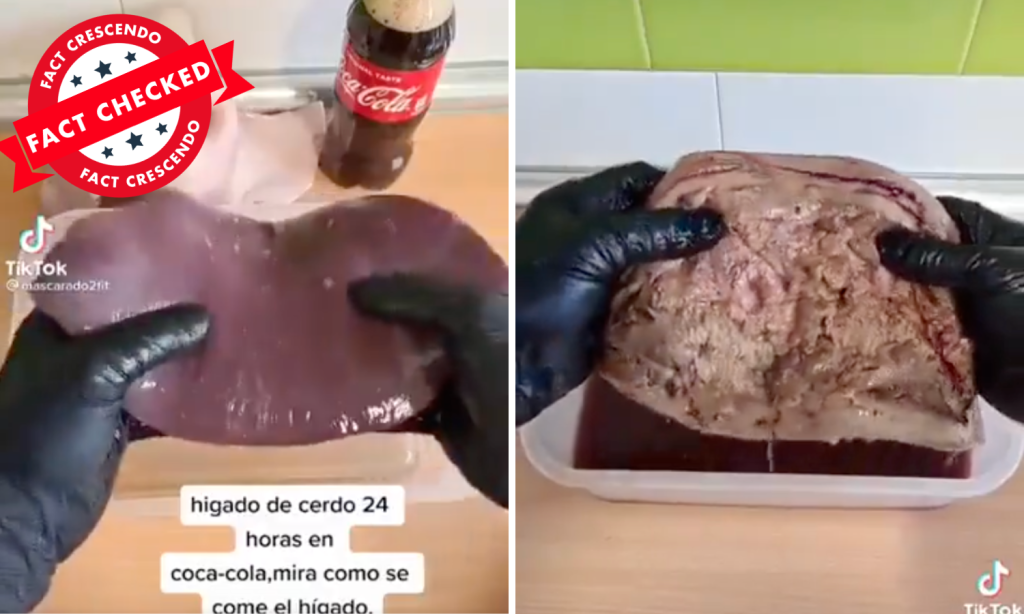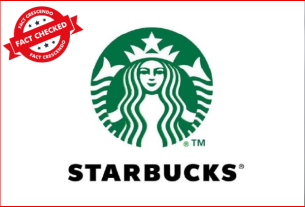
A video circulating on social media allegedly shows a human liver’s reaction to Coke and other soft drinks. The video displays reactions such as bubbling and disintegration, which some viewers interpret as evidence of fizzy drinks’ effects on the human liver.
Social Media Claim
A Facebook user shared a video showing a liver submerged in Coca-Cola. The caption, translated, reads: “Here’s proof that Coca-Cola is more dangerous than beer. Share widely.”
We also found similar videos with comparable claims spreading on other platforms.


However, our fact-checking revealed that the video and its associated claim are misleading and could potentially misinform viewers.
Fact-check
The video in question does not depict a human liver’s reaction to Coca-Cola or any other soft drink. Using Reverse Image Search, we traced the video’s origin to the website “food.detik.com“. According to this article, the liver featured is actually a pork liver, not a human one. Notably, the video also shows the pork nose alongside the liver. Furthermore, this experiment fails to replicate the actual conditions inside a living organism.

Experts have weighed in on this claim. Dr. John Afam, a medical doctor specializing in liver health, pointed out that the human body’s internal environment is highly regulated by enzymes, pH levels, and other biological processes—something a simple experiment with a dead liver cannot replicate. He further explains that while sugary drinks can have negative long-term effects on liver health, such as increasing the risk of fatty liver disease, the dramatic reactions seen in the video are not indicative of what happens within a living human body.
The liver shown in the video undergoes chemical reactions specific to dead tissue exposed to acid. The fizzing and bubbling are more related to the soft drink’s properties when exposed to decomposing organic matter, which differs vastly from how a living human liver would metabolize substances.
Soft Drink Consumption and Liver Health
Although the viral video is misleading, frequent consumption of sugary drinks can indeed harm your liver over time. Soft drinks with high sugar content can cause fat to accumulate in liver cells, leading to non-alcoholic fatty liver disease (NAFLD). NAFLD is now one of the leading causes of liver transplants, and excessive sugar intake can also increase the risk of heart disease, diabetes, and even liver cancer. However, moderation and lifestyle changes, like exercise and a balanced diet, can significantly reduce these risks. (Source)
Summary
The video purporting to show a human liver’s reaction to soft drinks is not scientifically accurate. The experiment uses a pig liver, and the observed reactions do not represent how a living human liver processes beverages. While research indicates that excessive consumption of sugary drinks can potentially impact liver health over time, the video’s dramatic portrayal does not align with actual biological processes.




